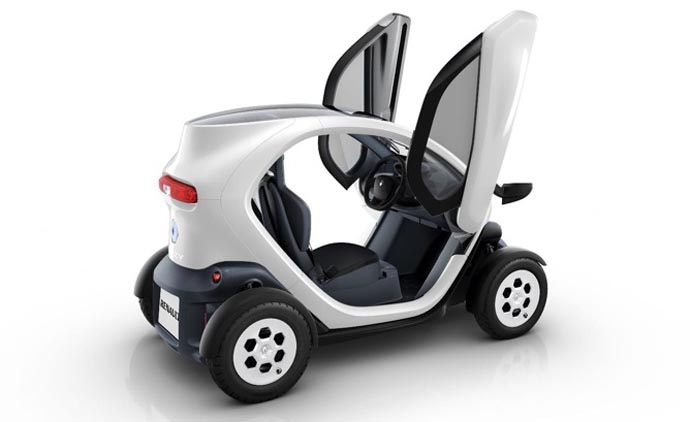Renault is selling four times as many examples of its two-seater, battery-powered two-seater, the Twizy, as it is its Fluence electric saloon. Only the Kangoo ZE commercial van, which appeals to urban courier companies who like its low-running costs and exemption from congestion charges, has sold more.

Renault has sold 252 examples of the Twizy in the space of four months, which whilst impressive for an electric car pales when compared to other city cars. In its favour, the Twizy is a highly distinctive-looking car, which can have zero emissions in day-today driving if the electricity you use to charge it is bought from a renewable source. The electric runabout is considered fun to drive and easy to park. Not so easy to live with is the fact that you have to pay extra for doors and £45 each month to hire the battery. The basic Twizy costs £6690. The main reason that Renault has missed out on more sales is the car’s competition. For an extra £1305, you can buy a VW Up, a four-seater city car with a three-cylinder 1.0 litre petrol engine that delivers over 62mpg while emitting CO2 at a rate of less than 100g/km.
Three year’s battery hire for the Twizy based on 13,500 miles of driving costs costs £1,620 – a sum that would buy 256 gallons of fuel for the VW Up and enough for up to 16,000 miles of motoring. Add to that the fact the Volkswagen has four seats, a better expected residual value, a bigger range and better features and you realise that as fun a car as it is, the Twizy looks set to remain a novelty.
Are electric cars still too expensive to compete?
If the Renault Twizy was half the price it might be a sensible and environmentally-friendly alternative for commuters who currently use a large scooter. For most faced with the choice between a two-seater Twizy and a small internal combustion-engined city car such as the Toyota Aygo, Citroen C1 or VW Up the electric option is simply too expensive and impractical.
Given the relatively high-purchase price of electric cars such the Nissan Leaf, it should come as little surprise that they are being bought by those wealthier than average.
The Electric Vehicle Information Exchange (EVIX) in America has found that drivers who own, lease, or are interested in electric vehicles (EVs) are more than twice as wealthy as most Americans.
EVIX, which works to promote the electric vehicle industry, has found that drivers interested in buying an electric car are younger and less wealthy than those who already own EVs, and have higher expectations: Potential buyers are not prepared to buy an electric car demand an EV that can compete with its internal combustion engine counterparts on price, quality and performance. They are not prepared to buy an EV simply to reduce their impact on the environment.
Most respondents to the survey said that an electric car would need a minimum range of 150 miles before they would consider buying one.
American electric car-maker Tesla has launched a four-seater all-electric Model S that has been well received by critics. Prices range from the equivalent of £38,000 up to £70,000.
Do you have Breakdown Cover?
ETA award-winning breakdown cover from less than £30
Tim Pearce
The main barrier to ownership of electric cars is the low percentage of British homes that have off-road parking next to the house. If you have to park in the street (as with most lower-income homes) there is no way that you can recharge when you get home.
Bray
I cant understand why people are demanding so much range before considering a EV when the average driver does not do anywhere near 150 miles in one day.